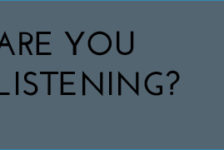
Photo courtesy Phil Roder, Creative Commons via Flickr
Bernie Sanders is the oldest candidate in the presidential race. If elected, the self-described “democratic-socialist” will be the oldest U.S. president ever to serve—strange, considering his campaign is being carried aloft on the avid gusts of the electorate’s youngest, an alliance that conjures images from Disney/Pixar’s “Up.”
Hillary Clinton, on the other hand, finds her strongest support with the electorate’s oldest, who came of age in an era when identifying as a socialist was practically grounds for internment.
Put another way, Sanders’ base watched “Up” among friends, and if Clinton is still watching Disney, it’s probably for her grandkids’ sake.
Millennials “feeling the Bern” resonate with Sanders’ antipathy toward the “rigged economy,” in which the rapidly rising sea levels of corporate greed are shrinking the land of job opportunity where even the college-educated struggle to find decent work. His promise of free tuition makes good sense to the litany of 20-somethings trying to pay down massive college debts on a barista’s income.
“I think it’s pathetic that the U.S. doesn’t offer free higher education,” said Elhom Gosink, political science major. “It’s even more pathetic that students pay higher interest on loans than banks do.”
Popular response to Sanders’ plan has prompted Clinton to tack left on her own education policy. But her “debt-free” plan stops short of universal access, instead helping primarily “those who need it most.”
“I disagree with free college for everybody,” Clinton said recently. “I don’t think taxpayers should be paying to send Donald Trump’s kids to college.”
The problem with Sanders’ plan, Clinton argues, is the $700 billion price tag, which renders it dead on arrival in a tight-fisted and adamantly inactive congress. Still, Sanders’ plan creates more excitement with Westminster students.
“American politicians don’t seem to understand the huge long-term benefits of investing in education,” said Thomas Eliason, junior. “Sanders may not be able to get it done, but at least he’s willing to try.”
Old. But bold.
Clinton herself is no spring chicken to politics—a public figure since 1979 as the first lady of Arkansas. Yet, a Clinton victory would birth something brand new: the first female commander in chief—a thrilling prospect many presumed would make her a shoo-in with women. However, just as opposites attract, likeness can repel, because feminists everywhere are digging their heels in.

Photo courtesy U.S. Embassy London, Creative Commons via Flickr
“I have no interest in voting for a female just because she’s a female,” said Gosink, sanders supporter. “I would love to see a woman president, but Clinton’s feminism is ‘second wave’ and amounts to getting women out of the house and into the workforce, in order to emulate masculine traits instead of acknowledging the value of traits traditional to women.”
Alexandra Lenzi, sophomore, agreed: “I don’t think Hillary’s policies will ultimately help women as much they think. And I don’t think she’s focused enough on intersectionality. I dislike the fact that she opposed gay marriage until 2013. It’s amazing how quickly she changes depending on the audience.”
Indeed, Clinton has a reputation for shape-shifting: she bubbled over with support for the Keystone XL pipeline, but damned it in the wake of environmentalist opposition; she pushed full-sail ahead with the Trans Pacific Partnership trade agreement, only to leave it in doldrums when labor activists caught wind; and no one, Sanders especially, lets her forget the position she took on Iraq, whose invasion she favored before she denounced when its sheer, venal idiocy became general knowledge.
“She’s just another democrat,” said Eliason, junior. “If she gets elected, nothing will be any different than it is now. With Sanders, I think, there’s a lot bigger chance of real improvement.”
For Lenzi, economics major, Clinton’s history is too suspect.
“Her record is very choppy, and you get the sense she’s interested in her own career more than anything else,” Lenzi said. “It’s funny, but I think an old white man will represent me better than a woman in this election.”
Sanders has slid leftward on gun control, but his long record in politics has otherwise been preternaturally consistent. When he was elected mayor of Burlington, Vermont, he said, “The rich are getting richer, the poor are getting poorer, and millions of families in the middle class are sliding out of the middle class.”
That was 35 years ago, but you might have heard him say it yesterday, too. Our generation appreciates a guy who stays on message.
Clinton has still garnered endorsements from prominent young women—”Girls” creator Lena Dunham and roaring pop sensation Katy Perry among them—who laud her championship women in the workforce and “equal pay.”
For better or worse, the Clinton campaign is deepening a major fault line in feminism. Serious renovations may be needed to enlarge the “special room in hell for women who don’t support each other,” according to Madeline Albright, fierce Clinton backer and former secretary of state.
But other women are more concerned with the glass-ceilinged room they’re in right now—and the question remains: will a Hillary Clinton presidency shatter the glass, or just Windex it?
Millennials now constitute the largest generation in the electorate and a critical factor in American politics. If young women wave Clinton off, she’s going to have a tough time popping Sanders’ balloon—but from the view at Westminster, it still looks pretty high up.








